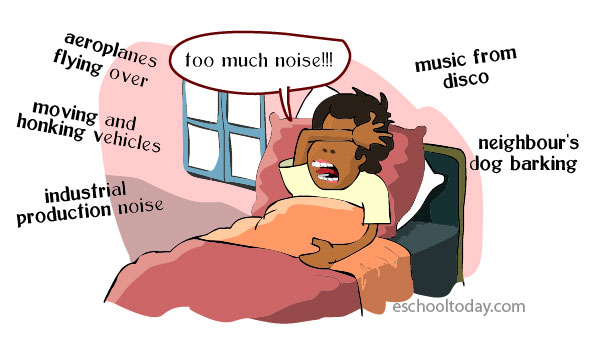- Noise Pollution
Recommended Pollution Lessons
What is noise pollution?
Sound is essential to our daily lives, but noise is not. The term means an unwanted sound or sound which produces unpleasant effects and discomfort on the ears.

Sound becomes unwanted when it either interferes with day to day activities such as sleeping and conversation or diminishes a person’s quality of life. Not all noise can be called noise pollution. If it does not happen regularly, it may be referred to as a nuisance.
Scientists also believe that it is not only humans who are affected. For example, water animals are subjected to the noise by submarines and big ships on the ocean, and chain-saw operations by timber companies also create extreme noise to animals in the forests.
Generally, noise is produced by household gadgets, big trucks, vehicles and motorbikes on the road, jet planes and helicopters hovering over cities, loudspeakers, etc.
Noise (or sound) is measured in the units of decibels and is denoted by the dB. A noise that is more than 115 dB is tolerant. The industrial limit of sound in the industries must be 75 dB according to the World Health Organization.
Noise pollution is considered environmental pollution even though it has less damage on humans than water, air, or land pollution. However, people who are affected by severe noise pollution know that it is a real issue that needs attention.
Let us learn more.
